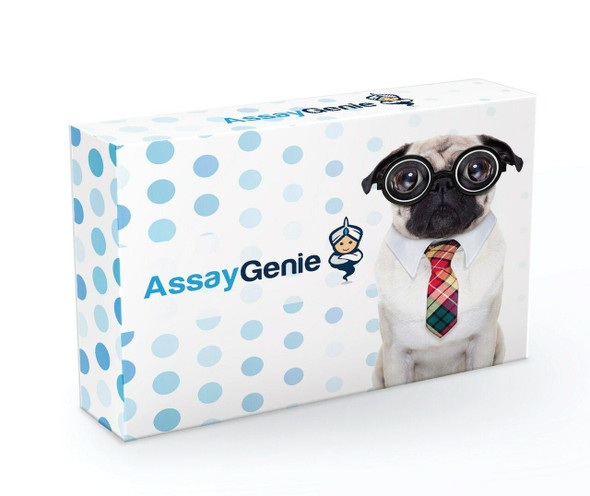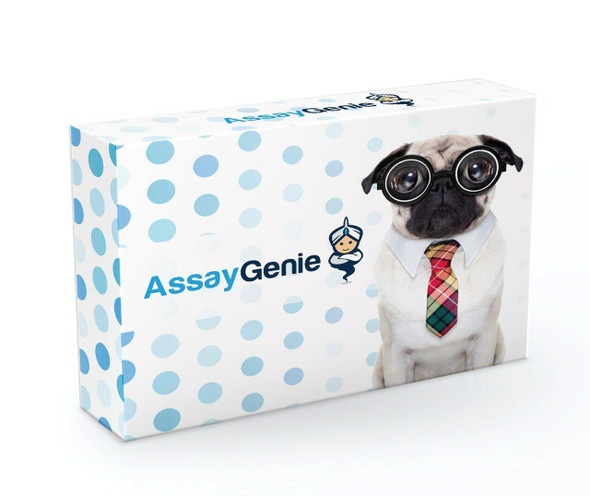Description
ACTG1 Antibody (PACO13819)
The ACTG1 Polyclonal Antibody (PACO13819) is a valuable tool for researchers studying ACTG1, a crucial protein involved in cellular structure and function. Raised in rabbits, this antibody exhibits high reactivity with human samples and is validated for use in Western blot applications. By binding to the ACTG1 protein, it enables accurate detection and analysis in various cell types, making it an ideal choice for studies in cell biology and molecular biology.ACTG1, also known as gamma-actin, is a key component of the cytoskeleton and plays a critical role in cell motility, shape, and integrity. Dysregulation of ACTG1 has been linked to various human diseases, including cancer and developmental disorders.
Understanding the function and regulation of ACTG1 is essential for unraveling its role in these conditions and for developing targeted therapies.By using the ACTG1 Polyclonal Antibody (PACO13819), researchers can delve deeper into the mechanisms behind ACTG1's function and its implications in cellular processes and disease development. This antibody opens up new avenues for investigating the biology of ACTG1 and its potential as a therapeutic target in various pathological conditions.
| Antibody Name: | ACTG1 Antibody (PACO13819) |
| Antibody SKU: | PACO13819 |
| Size: | 50ul |
| Host Species: | Rabbit |
| Tested Applications: | ELISA, WB |
| Recommended Dilutions: | ELISA:1:2000-1:5000, WB:1:500-1:2000 |
| Species Reactivity: | Human, Mouse, Rat |
| Immunogen: | Fusion protein of human ACTG1 |
| Form: | Liquid |
| Storage Buffer: | -20°C, pH7.4 PBS, 0.05% NaN3, 40% Glycerol |
| Purification Method: | Antigen affinity purification |
| Clonality: | Polyclonal |
| Isotype: | IgG |
| Conjugate: | Non-conjugated |
 | Gel: 10+12%SDS-PAGE, Lysate: 40 μg, Lane: Human lymphoma tissue, Primary antibody: PACO13819(ACTG1 Antibody) at dilution 1/350, Secondary antibody: Goat anti rabbit IgG at 1/8000 dilution, Exposure time: 1 second. |
| Background: | Actins are highly conserved proteins that are involved in various types of cell motility, and maintenance of the cytoskeleton. In vertebrates, three main groups of actin isoforms, alpha, β and γ have been identified. The α actins are found in muscle tissues and are a major constituent of the contractile apparatus. The β and γ actins co-exist in most cell types as components of the cytoskeleton, and as mediators of internal cell motility. Actin, γ 1, encoded by this gene, is a cytoplasmic actin found in non-muscle cells. Mutations in this gene are associated with DFNA20/26, a subtype of autosomal dominant non-syndromic sensorineural progressive hearing loss. Alternative splicing results in multiple transcript variants. |
| Synonyms: | actin, γ 1 |
| UniProt Protein Function: | ACTG1: Actins are highly conserved proteins that are involved in various types of cell motility and are ubiquitously expressed in all eukaryotic cells. Polymerization of globular actin (G-actin) leads to a structural filament (F-actin) in the form of a two-stranded helix. Each actin can bind to 4 others. Belongs to the actin family. |
| UniProt Protein Details: | Protein type:Motility/polarity/chemotaxis; Cytoskeletal Chromosomal Location of Human Ortholog: 17q25 Cellular Component: filamentous actin; extracellular space; cytoskeleton; myofibril; membrane; plasma membrane; nucleus; cytosol Molecular Function:identical protein binding; protein binding; structural constituent of cytoskeleton; ubiquitin protein ligase binding; ATP binding Biological Process: axon guidance; retinal homeostasis; intercellular junction assembly and maintenance; ephrin receptor signaling pathway; innate immune response; sarcomere organization; cell motility; vascular endothelial growth factor receptor signaling pathway Disease: Baraitser-winter Syndrome 2; Deafness, Autosomal Dominant 20 |
| NCBI Summary: | Actins are highly conserved proteins that are involved in various types of cell motility, and maintenance of the cytoskeleton. In vertebrates, three main groups of actin isoforms, alpha, beta and gamma have been identified. The alpha actins are found in muscle tissues and are a major constituent of the contractile apparatus. The beta and gamma actins co-exist in most cell types as components of the cytoskeleton, and as mediators of internal cell motility. Actin, gamma 1, encoded by this gene, is a cytoplasmic actin found in non-muscle cells. Mutations in this gene are associated with DFNA20/26, a subtype of autosomal dominant non-syndromic sensorineural progressive hearing loss. Alternative splicing results in multiple transcript variants.[provided by RefSeq, Jan 2011] |
| UniProt Code: | P63261 |
| NCBI GenInfo Identifier: | 54036678 |
| NCBI Gene ID: | 71 |
| NCBI Accession: | P63261.1 |
| UniProt Secondary Accession: | P63261,P02571, P14104, P99022, Q5U032, Q96E67, A8K7C2 |
| UniProt Related Accession: | P63261 |
| Molecular Weight: | 375 |
| NCBI Full Name: | Actin, cytoplasmic 2 |
| NCBI Synonym Full Names: | actin, gamma 1 |
| NCBI Official Symbol: | ACTG1 |
| NCBI Official Synonym Symbols: | ACT; ACTG; BRWS2; DFNA20; DFNA26; HEL-176 |
| NCBI Protein Information: | actin, cytoplasmic 2; cytoskeletal gamma-actin; epididymis luminal protein 176 |
| UniProt Protein Name: | Actin, cytoplasmic 2 |
| UniProt Synonym Protein Names: | Gamma-actinActin, cytoplasmic 2, N-terminally processed |
| Protein Family: | Actin |
| UniProt Gene Name: | ACTG1 |
| UniProt Entry Name: | ACTG_HUMAN |
| Antibodies | ELISA Kits |
| ACTG1 Antibody (PACO07580) | Human ACTG1 / Gamme Actin ELISA Kit |
| Human ACTG1 (Actin Gamma 1) CLIA Kit (HUES00190) | |
| Human ACTG1 (Actin Gamma 1) ELISA Kit (HUES01494) |
| Secondary Antibody |
| Anti-HRP Goat Anti-Rabbit IgG (H+L) Antibody (CABS014) |
| Recommended Products |
| Anti-FITC Goat Anti-Rabbit IgG (H+L) Antibody (CABS011) |
| Anti-HRP-conjugated Beta Actin Antibody (CABC028) |











